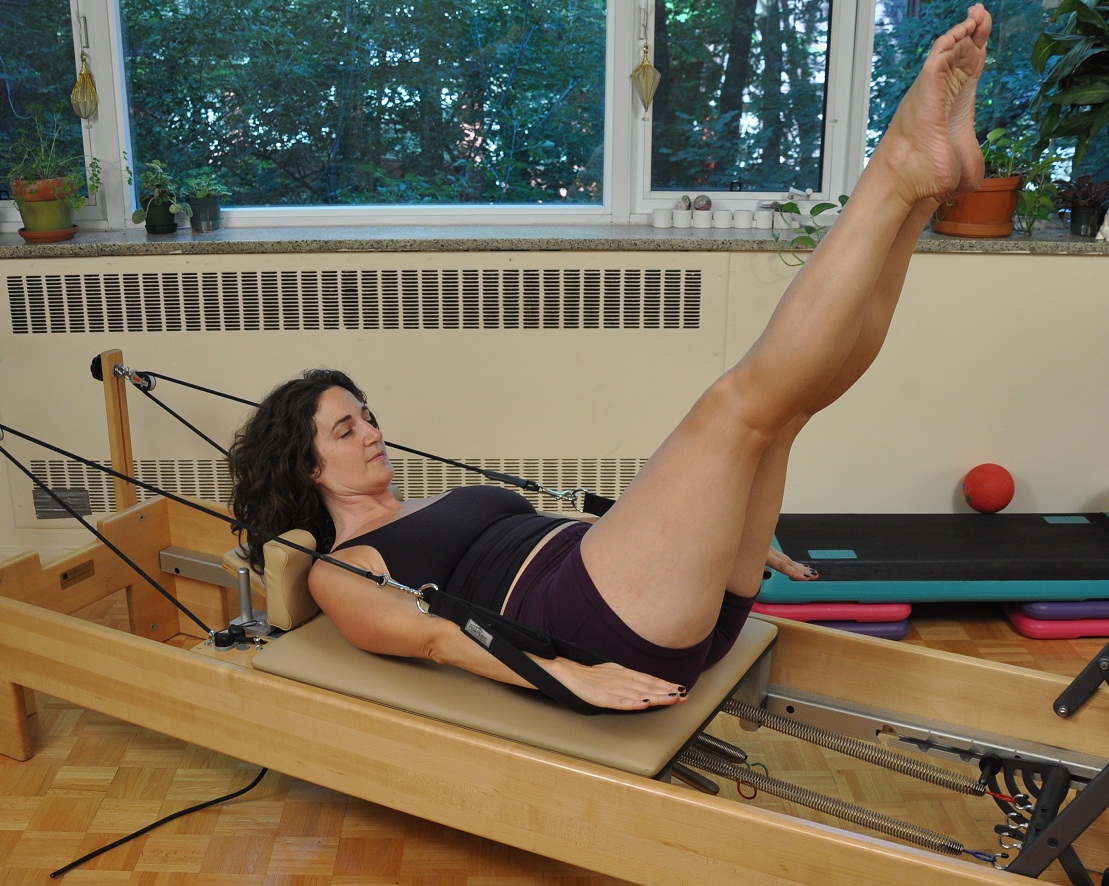.
several years ago i convinced my sister, who was then suffering some pretty serious repetitive strain issues in her neck/shoulders, to try pilates. since she was living in another city she found a local studio and off she went. this teacher started her off with the hundreds and the roll up, she walked out in more pain than she walked in and eventually found an amazing yoga teacher who helped her immeasurably. she found her by looking for someone who talked about the work the way i did rather than concentrating on their “method.”
if you’ve never seen the hundreds or the rollup before one of them is a straight leg sit up (basically) and the other involves having ones legs in the air and held at a forty five degree angle from the floor and from your hips while holding ones head up and pumping ones arms. these are advanced exercises that some people will NEVER do and that i myself didn’t see until i had been taking lessons twice a week for nearly a year, and even then i only saw the hundreds in pieces rather than in it’s entirety.
.

.
furthermore, both exercises assume that one has some ability to stabilize the shoulder girdle and recruit the deeper abdominals. neither is suggested for healthy and strong beginners let alone injured people with screwed up shoulders and low backs.
in other words, she was the victim of a teacher who did NOT understand the work, it’s effect on the body or the effects of her repetitive strain problem on movement patterns. a teacher who clearly lacked dedication and education.
but how was my sister to know that? the teacher had been recommended by a reputable certification organization and had done the basic training; what she hadn’t done was dial into the work and delve into the depths of it’s relevance anatomically. or maybe she just didn’t accept that she wasn’t up to the challenge presented by the client in front of her.
but again, how does that help you? what should you look for when finding a movement teacher (or personal trainer, or yoga teacher or karate instructor or dance class…?)
since my sister’s experience i’ve given this a lot of thought and here’s what i’ve come up with (please feel free to add to this list or critique any of these)
does the teacher:
take a history?
discuss what you want to accomplish and how to get there?
motivate rather than chastise?
care more about how well you do something than about how many times you do it?
listen if you tell him that something hurts or “feels impossible” and modify the exercise for you?
encourage you to work harder without encouraging you to hurt yourself or push past your body’s limits?
ask how you felt the day after you saw her?
suggest work that is relevant to your body and weaknesses?
LISTEN when you talk?
find new words or movements if the current ones aren’t working for you?
speak often of whatever they’re learning lately?
stay invested in your progress over the long haul?
discuss breath and anatomy as they relate to your movement?
have a generally positive attitude and outlook?
these are all excellent signs in a teacher and can be looked for during the first lesson or the fiftieth. i have never gone wrong when choosing smart, dedicated and passionate people as my providers. i have an amazing osteopath, reflexologist, naturopath (see sidebar for masina wright or 360 health care,) athletic therapist, physiotherapist, acupuncturist etc… and all of these people have in common their love and deep fascination with their subject.
you can tell who will be good from the way they talk about the work they do, from the way they light up when you *get* something, from the lines they try to draw for you to find your own inspiration.
look for passion and intelligence and dedication and a desire to improve the lives of those around them. look for people who say i don’t know and then find out the answer. folks who will refer you to someone else if your results aren’t what they expect. people who put you before their pocketbook.
look for them.

And on my birthday no less!! That’s a great list, well done, Angela.